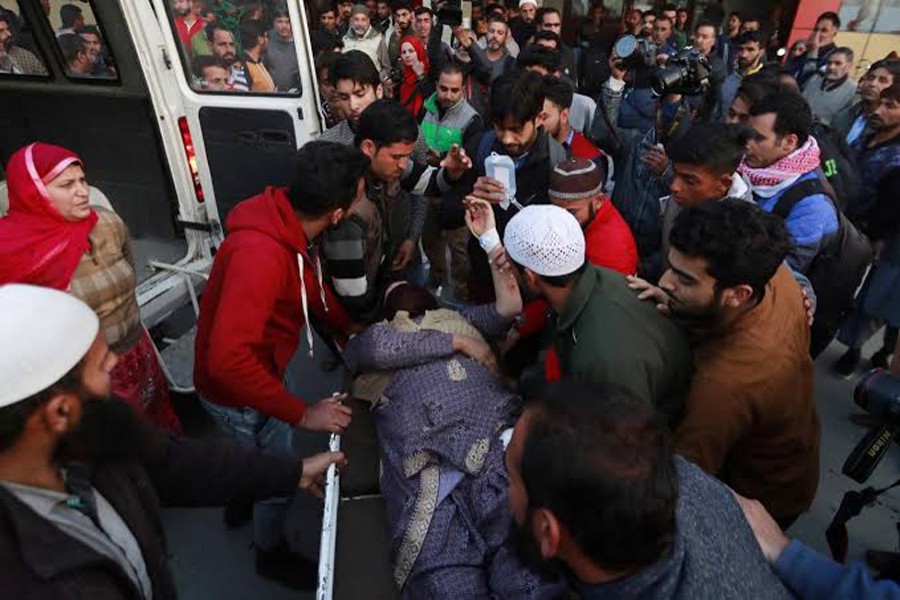A group of EU lawmakers will visit Indian Kashmir on Tuesday, the first foreign delegation since the special status of the region was revoked, Indian officials said, hours before a grenade attack underlined the volatility of the situation.
At least 17 people including two women were injured on Monday in the attack at a market in the town of Sopore, in North Kashmir’s Baramulla district, a senior police officer told Reuters. It was the second grenade attack in three days after six members of India’s security forces were injured in Srinagar.
Tensions have been running high since Indian Prime Minister Narendra Modi’s government withdrew Kashmir’s autonomy in August, seeking to tighten its grip on the Muslim-majority territory also claimed by neighbouring Pakistan. The move was accompanied by a security crackdown on dissent, to head off protests.
The European Union delegation will be the first foreign group visiting Kashmir since August. This month, US members of Congress expressed concern over a lack of access for diplomats and foreign media.
The delegation of 27 lawmakers drawn from 11 countries will meet with government officials and residents to assess the situation in Kashmir, Indian officials said.
Pakistan has condemned the change of status of the territory, where militants have been fighting Indian rule for nearly 30 years, leading to the deaths of more than 50,000 people. It warned the decision could drive more Muslims to extremism across the world.
The Kashmir dispute has bedevilled relations between the two nuclear-armed nations and sparked two of their three wars.
Modi’s move
New Delhi has said the situation is returning to normality in the region since the clampdown. Hundreds of people have been freed from detention and phone lines restored, although the internet remains suspended for fear it could be used to organise protests that have turned violent in the past in the region.
On Monday, the EU lawmakers met Modi who said the visit would give them a clear view of the development priorities of the region, his office said.
Modi, making the biggest political move in Jammu and Kashmir since an armed revolt erupted in 1989, has said that special rights for Kashmir, such as a ban on outsiders buying property, had hindered its development.
Within the region, which includes the Hindu-dominated Jammu region and the Buddhist enclave of Ladakh, the turmoil that was confined to the disputed Kashmir Valley had held back the development of other parts of the state, Reuters reports.
“Their visit to Jammu and Kashmir should give the delegation a better understanding of the cultural and religious diversity of the region of Jammu, Kashmir and Ladakh,” Modi said.
An Indian official said the EU group’s visit would open the door to visits by others. India is trying to counter Pakistan on the international stage. Islamabad has accused New Delhi of unleashing genocide in Kashmir.
Former Jammu and Kashmir Chief Minister Mehbooba Mufti, one of the scores of leaders detained since August, said on Twitter she hoped the lawmakers would be allowed free access.
“Hope they get a chance to speak to the people, local media, doctors and civil society members. The iron curtain between Kashmir & the world needs to be lifted.”


